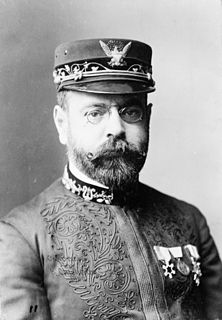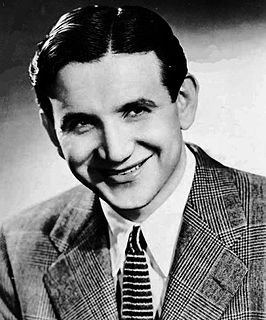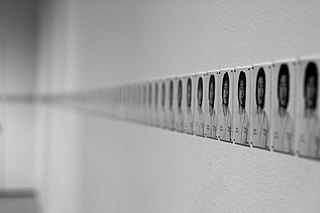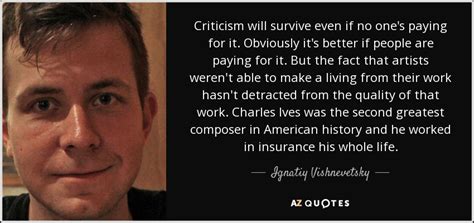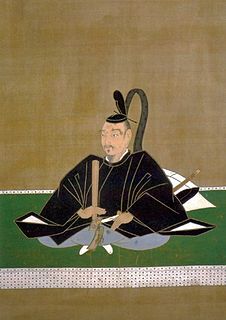A Quote by Igor Stravinsky
The real composer thinks about his work the whole time; he is not always conscious of this, but he is aware of it later when he suddenly knows what he will do.
Related Quotes
You exist in time, but you belong to eternity- You are a penetration of eternity into the world of time-You are deathless, living in a body of death- Your consciousness knows no death, no birth- It is only your body that is born and dies-But you are not aware of your consciousness-You are not conscious of your consciousness-And that is the whole art of meditation;Becoming conscious of consciousness itself.
A man’s ignorance sometimes is not only useful, but beautiful - while his knowledge, so called, is oftentimes worse than useless, besides being ugly. Which is the best man to deal with - he who knows nothing about a subject, and, what is extremely rare, knows that he knows nothing, or he who really knows something about it, but thinks that he knows all?
Perhaps within the next hundred years, science will perfect a process of thought transference from composer to listener. The composer will sit alone on the concert stage and merely 'think' his idealized conception of his music. Instead of recordings of actual music sound, recordings will carry the brainwaves of the composer directly to the mind of the listener.
The mechanic, when a wheel refuses to turn, never thinks of dropping on his knees and asking the assistance of some divine power. He knows there is a reason. He knows that something is too large or too small; that there is something wrong with his machine; and he goes to work and he makes it larger or smaller, here or there, until the wheel will turn.
The truly educated man is not a man who knows a bit of everything, not even the man who knows all the details of all subjects (if such a thing were possible): the “whole man” in fact, may have little detailed knowledge of facts and theories...but he will be truly in touch with the centre. He will not be in doubt about his basic convictions, about his view on the meaning and purpose of his life. He may not be able to explain these matters in words, but the conduct of his life will show a certain sureness of touch which stems from this inner clarity.
I perform in art time and in real time, and you can't tell the difference - no one knows how to separate a real act from an art act in my work. When I lived on the street for a year, people only knew that I was homeless. They didn't know that I was an artist doing a piece. I have to use real time in my work. I do, however, have to find a subtle way of documenting real time, in order for people to have a response. That means punching into a work clock every hour in the case of one piece.
Criticism will survive even if no one's paying for it. Obviously it's better if people are paying for it. But the fact that artists weren't able to make a living from their work hasn't detracted from the quality of that work. Charles Ives was the second greatest composer in American history and he worked in insurance his whole life.
A man who has been born into the house of a warrior and yet places no loyalty in his heart and thinks only of the fortune of his position will be flattering on the surface and construct schemes in his heart, will forsake righteousness and not reflect on his shame, and will stain the warrior's name of his household to later generations. This is truly regrettable.



